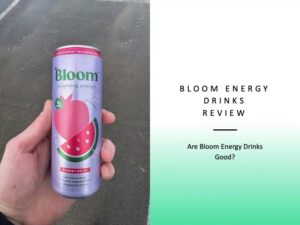
How Crippling Anxiety May Act as a Hurdle to Recovery for Many
Though much of the public dialogue around substance use focuses on access to care or financial limitations, a quieter, more insidious barrier often stands in the way of treatment: anxiety. For many individuals grappling with substance use disorders, the emotional paralysis caused by chronic anxiety can make the idea of entering treatment feel more threatening than the addiction itself. According to one prominent university, a large percentage of people with substance use disorders also suffer from untreated anxiety, creating a dual diagnosis that complicates both the decision to seek help and the course of recovery.
Key Takeaways
- Anxiety Is a Major, Often Overlooked Barrier to Recovery
Chronic anxiety can prevent individuals from seeking treatment for substance use disorders, even when resources are available. - Dual Diagnosis Complicates Recovery Efforts
Many people suffering from substance use also struggle with untreated anxiety, creating a dual condition that requires integrated treatment approaches. - Emotional Paralysis Can Be Stronger Than Addiction
In cases like Sarah’s, the fear of judgment, group settings, or emotional exposure can feel more threatening than the addiction itself. - Supportive and Flexible Treatment Environments Are Crucial
Programs that offer emotional safety, such as pet-therapy sober living homes, help reduce the anxiety associated with traditional treatment models. - Personalized Care Can Prevent Tragedy
Addressing both substance use and mental health needs—especially anxiety—may be the key to preventing relapse and overdose in vulnerable populations.
One Girl’s Tragic Story May Mean Hope for Future Women
Sarah was 21 when she died of an overdose in Baltimore, Maryland, in the fall of 2022. Her family had known she was struggling for a while, but what troubled them most wasn’t just the substance use — it was her crippling anxiety around getting help. Sarah had been open, even painfully honest, about her fear of group settings. The idea of walking into a room full of strangers and talking about her pain left her frozen. She’d look up meetings, bookmark treatment programs, even text friends saying she was going to try — but then the panic would set in.
Her family watched her vacillate between quiet hope and deep shame. She tried a virtual group once but left after ten minutes. “It just doesn’t feel safe,” she told her older sister. Despite their efforts to support her, and gentle pushes to at least start with one-on-one therapy, Sarah never fully crossed the threshold into structured recovery. When she died, it wasn’t from a deliberate decision to give up — it was from a momentary escape that turned fatal.
Her story isn’t uncommon. Social anxiety, fear of judgment, and trauma responses can all serve as invisible barriers to recovery. For Sarah, that barrier was stronger than her access to resources — and ultimately, stronger than her ability to keep holding on.
The experience of untreated anxiety can be deeply alienating—marked by feelings of shame, hypervigilance, and overwhelming self-doubt. These psychological symptoms often become internal justifications for avoiding treatment altogether. For example, individuals may fear being misunderstood, judged, or emotionally exposed in clinical settings. Others may panic at the thought of withdrawal, detox, or living in unfamiliar environments. Unfortunately, these fears—however real—often delay or entirely block access to life-saving care.
Bridging the gap of discomfort
Programs, such as the pet-therapy sober living facility in suburban Philadelphia, are helping to bridge this gap by addressing both conditions concurrently. Offering an emotional support companion, specially trained staff, and community-based routines, they help individuals re-establish a sense of safety, autonomy, and belonging while removing much of the anxiety involved in transitioning into a group support style sober living environment. In early recovery, these emotional foundations can be the difference between long-term sobriety and another relapse.
Why is anxiety such a powerful barrier to recovery?
Anxiety can cause extreme fear of vulnerability, judgment, and unfamiliar environments, making even the first step toward treatment feel impossible.
What is dual diagnosis?
Dual diagnosis refers to the co-occurrence of a mental health disorder (like anxiety) and a substance use disorder, both of which need to be treated simultaneously for effective recovery.
Are there treatment options that accommodate anxiety?
Yes. Programs that offer individual therapy, virtual care, or emotionally supportive environments—such as pet-assisted sober living homes—are designed to help individuals manage anxiety while pursuing recovery.
